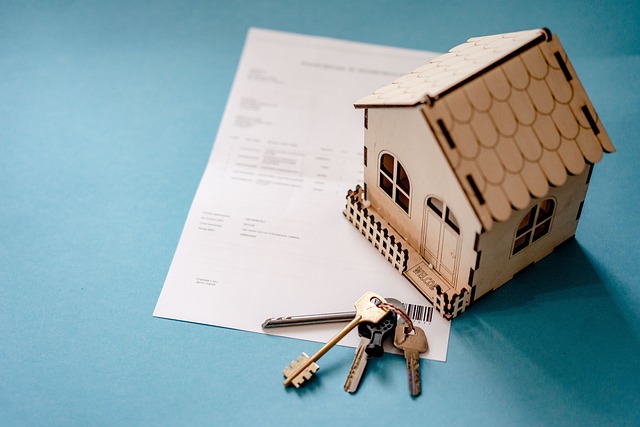Executive Condominiums (ECs) in Singapore cater to first-time homebuyers by offering a hybrid living experience that marries the luxury of condo life with the affordability of public housing. These dwellings are designed for families and come complete with amenities such as swimming pools, gyms, playgrounds, and function rooms. ECs initially target Singapore citizens but later open to both citizens and permanent residents after a five-year period or if specific conditions are met. Situated within mature estates or new towns, they offer proximity to established infrastructure including shopping centers, schools, and public transport. Investors should consider the long-term value of ECs, understanding that they are on a 99-year leasehold tenure, with resale potential influenced by location, developer reputation, unit size, and evolving government policies. Prospective buyers must meet specific eligibility criteria, including income ceilings and housing restrictions, and consider financing options such as CPF and HDB loans versus bank loans. By carefully evaluating these factors, individuals can confidently navigate the path to owning an Executive Condominium in Singapore's vibrant property market.
Exploring the real estate landscape of Singapore, first-time buyers often find Executive Condominiums (ECs) as a promising step towards homeownership. This article serves as a comprehensive guide tailored for those embarking on their property journey with ECs. We’ll navigate through understanding what ECs are, the buying process, pivotal selection factors, and financial options, including mortgage and CPF avenues. Additionally, we’ll highlight the benefits of living in an EC, such as spacious units, state-of-the-art facilities, and a vibrant community. Moreover, insights on maximizing your EC’s resale value will be provided. Whether you’re aiming for a new or resale EC, this guide is designed to equip you with the knowledge to make informed decisions in Singapore’s dynamic property market.
- Understanding Executive Condominiums (ECs): A First-Time Buyer's Overview
- The EC Buying Process: A Step-by-Step Guide for Newcomers
- Key Factors to Consider When Choosing Your First EC in Singapore
- Financing Your EC: Exploring Your Mortgage and CPF Options
- The Advantages of Living in an Executive Condominium: Space, Facilities, and Community
- Maximizing Resale Value: Tips for First-Time Buyers to Consider When Purchasing an EC in Singapore
Understanding Executive Condominiums (ECs): A First-Time Buyer's Overview

When venturing into the realm of property ownership, especially in Singapore, Executive Condominiums (ECs) present a unique opportunity for first-time buyers. These hybrid properties blend the features of public and private housing, offering a balance between affordability and the luxury of condominium living. Prospective buyers should familiarize themselves with the distinct characteristics of ECs. For instance, they are initially sold to Singapore citizens, but after a certain period, or upon meeting specific criteria, they can be resold to both citizens and permanent residents. This flexibility makes them an attractive option for those who may not yet qualify for a pure private condo.
ECs come with a host of facilities and amenities that are typical in private condominiums, such as swimming pools, gyms, and playgrounds. They also have the added benefit of being situated within mature estates or new towns with established infrastructure, including shopping centers, schools, and transportation networks. First-time buyers interested in ECs should consider the balance between their immediate needs and the potential for value appreciation over time. Understanding the eligibility criteria, lease terms, and resale conditions is crucial for making an informed decision. With a comprehensive approach to researching Executive Condominiums, first-time buyers can navigate this housing segment with confidence, leveraging the opportunities that ECs offer as a stepping stone into property ownership in Singapore.
The EC Buying Process: A Step-by-Step Guide for Newcomers

Venturing into the realm of property ownership, particularly with an Executive Condominium (EC), can be a rewarding yet complex journey for first-time buyers. The EC buying process is a structured path that newcomers must navigate to successfully acquire this type of housing. Initially, potential buyers should familiarize themselves with the unique characteristics of ECs, which are hybrid properties with a lease term and designed to cater to the needs of families over time. They are a fusion of public and private housing, offering the benefits of both at a more affordable price point.
To initiate the process, prospective buyers should determine their eligibility based on the criteria set by the CPF (Central Provident Fund) and HDB (Housing & Development Board), which include income ceilings and existing housing restrictions. Once eligible, the first official step is to apply for an EC unit via a ballot system if the application exceeds the demand threshold. Successful applicants will then engage in a Sales Agreement with the developer, followed by obtaining an HDB loan or a bank loan. It’s crucial to note that upon fulfilling the Minimum Occupation Period (MOP), ECs can be sold privately without any penalties, enhancing their appeal as both a starter home and a long-term investment. Throughout this process, first-time buyers should leverage the wealth of resources available, including buyer’s guides, financial advisors, and the helpful staff at the HDB or CPF boards to ensure a smooth transition into EC ownership.
Key Factors to Consider When Choosing Your First EC in Singapore

When embarking on the journey of purchasing your first Executive Condominium (EC) in Singapore, several key factors merit your careful consideration to ensure a sound investment and a comfortable living space. Firstly, evaluate the location of the EC. Proximity to essential amenities such as supermarkets, schools, transport hubs, and healthcare facilities can significantly enhance your daily convenience and quality of life. Additionally, consider the development’s accessibility through public transportation, which is crucial for both connectivity and future resale value.
Secondly, assess the balance between unit size and affordability. As an EC, these properties offer a unique mix of private condominium and public housing benefits, catering to both young families and professionals. The size of the unit that best fits your lifestyle and budget should be determined, keeping in mind long-term needs and potential changes in household composition. Also, take into account the development’s age and the track record of the developer, as these can influence maintenance standards and property appreciation prospects. By carefully considering these factors, first-time buyers can make an informed decision that aligns with their current and future aspirations within the framework of Singapore’s vibrant property landscape.
Financing Your EC: Exploring Your Mortgage and CPF Options

When considering the purchase of an Executive Condominium (EC), one of the most critical aspects to navigate is the financing aspect. Prospective first-time buyers should explore their mortgage and Central Provident Fund (CPF) options thoroughly to ensure a sound financial foundation for their investment. The CPF is a comprehensive savings plan administered by the CPF Board, designed to aid Singaporeans in financing their home purchases. When it comes to ECs, the CPF Ordinary Account (OA) can be utilized for the purchase of resale flats, and from the 6th month after the first occupier takes possession of the EC, up to a certain limit. This makes the CPF a significant financial tool for first-time buyers, as it offers both savings and loan options.
In addition to CPF, prospective buyers have various mortgage options available. The Monetary Authority of Singapore (MAS) regulates home loans, ensuring that loan-to-value (LTV) ratios are managed responsibly. For ECs, buyers can finance up to 75% of the purchase price or value of the property, whichever is lower, with the remaining 25% from their own funds. This LTV ratio allows buyers to leverage bank loans for a portion of their EC purchase. It’s advisable to compare mortgage rates and terms offered by different financial institutions to secure the best possible financing package. By understanding the interplay between CPF usage and mortgage options, first-time buyers can navigate the funding landscape with greater confidence and clarity when purchasing an Executive Condominium.
The Advantages of Living in an Executive Condominium: Space, Facilities, and Community

Living in an Executive Condominium (EC) presents a unique set of advantages, particularly for first-time buyers who are looking for a balance between affordability and quality living. Unlike traditional public housing, ECs offer larger units that cater to families, providing ample space for residents to enjoy their living quarters without the premium pricing of private condominiums. This spaciousness is not just about physical area but also about the opportunity to create a comfortable and personalized home environment that can accommodate growth, such as welcoming children or hosting family gatherings.
Moreover, ECs come with a suite of facilities designed for the convenience and recreation of its residents. These may include swimming pools, gyms, playgrounds, BBQ pits, and function rooms, fostering a lifestyle that is both active and socially engaging. The communal aspect of living in an EC also cannot be overstated; it’s a place where neighbors form a close-knit community, often organizing events and activities that strengthen social bonds and create a supportive network for all ages. This community spirit is an invaluable advantage of choosing an Executive Condominium, offering residents the chance to build lasting relationships within a secure and well-managed living environment.
Maximizing Resale Value: Tips for First-Time Buyers to Consider When Purchasing an EC in Singapore

When purchasing an Executive Condominium (EC) in Singapore, especially as a first-time buyer, it’s prudent to consider factors that can enhance the resale value of your property. An EC is a unique hybrid housing type that offers the luxury of a condo while allowing owners to lease the land for 99 years—a feature that is rare among private condominiums. To ensure that your EC remains a valuable asset in the future, pay attention to location, development potential, and the track record of the developer.
Selecting an EC in a mature estate or one with a strong uplift potential can significantly influence its resale value. Proximity to amenities such as shopping centers, schools, and transportation nodes is highly sought after. Additionally, consider the reputation and past performance of the developer. A developer with a history of successful projects can be a good indicator of quality and future value retention. Other factors include the size and layout of the unit, which should cater to the broader market trends—larger units in family-centric areas or smaller, more affordable options for singles and couples. Lastly, always keep an eye on government policies and initiatives that can affect the property market, as these can have a substantial impact on the resale value of ECs.
Navigating the property market as a first-time buyer can be daunting, but with the right knowledge and guidance, purchasing an Executive Condominium (EC) in Singapore is a feasible and rewarding endeavor. This article has broken down the key aspects of ECs for new homeowners, from understanding what an EC is to the buying process, essential factors to consider, financing options, advantages of living in an EC, and tips to enhance resale value. Armed with this information, prospective buyers are well-equipped to make informed decisions. Remember that each buyer’s needs and preferences differ, so it’s crucial to assess all factors carefully before taking the step into EC ownership. For those ready to explore the benefits of an EC, this guide serves as a valuable resource for securing your first property in Singapore’s vibrant housing market.


